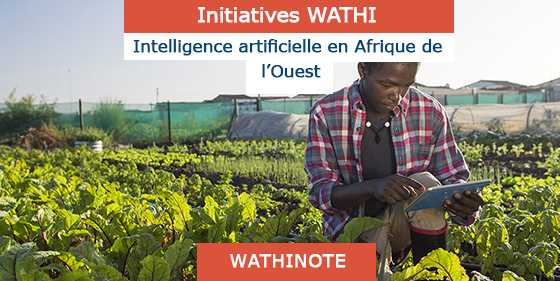

Authors : Clayton Besaw, John Filitz
Affiliated Organization : One Earth Future, UN University
Type of publication : Article
Date of publication : January 2019
Meeting the rising expectations of growth on the continent will require innovative approaches to address governance challenges faced by African countries. At the same time, African states are facing pressures to deliver services to rapidly growing metropolitan areas while simultaneously improving performance on issues including stubborn poverty, continued political instability, as well a plethora of security threats including transnational organised crime and political violence.
One tool that has been touted as a potential solution is artificial intelligence (AI). It could also be a useful tool for augmenting state capacity in weak and fragile state contexts. As with many disruptive technologies, however, AI can be used for positive or negative ends.
Positive AI and negative AI in the African context
So far, developments in AI have been predominately driven by private sector technology actors, but growing interest by African governments has seen the start of conversations around “AI strategies” for growth and governance across the continent.
To curtail the potential for negative AI, a brain trust at the nexus between global, regional, and local governments should seek to establish a common framework for effective governance of internet-enabled technologies
Positive AI is the use of such systems for broad social benefit. Conversely, negative AI is used for social division, suppression, or even violence. While the positive applications seek to solve gaps in development, the power of AI to augment skills and resource deficits can also potentially be harnessed by challengers to the state and by states that seek to suppress political opposition. Deep fakes, or the creation of artificial videos, voice recordings, and data, could be used to emphasise existing ethnic and religious divisions and to attack nascent democratic institutions.
Alongside artificial misinformation, governments may also seek to use AI to further suppress and monitor political opposition or marginalised groups. With the help of China, the Zimbabwean government has begun collecting individuals’ facial imagery to be used by existing monitoring and facial recognition applications.
Finally, like the proliferation of telecommunication technology, negative AI applications may help to lower the cost associated with violence by both non-state and state entities alike.
How can global governance institutions help mitigate negative AI in Africa ?
To curtail the potential for negative AI, a brain trust at the nexus between global, regional, and local governments should seek to establish a common framework for effective governance of internet-enabled technologies. Such a framework should ideally attempt to curtail the malignant use of the internet, data, and AI applications.
While the positive applications seek to solve gaps in development, the power of AI to augment skills and resource deficits can also potentially be harnessed by challengers to the state and by states that seek to suppress political opposition
The African Union Commission in early November 2018 presided over the Seventh Internet Governance Forum on the theme of “Development of the Digital Economy and Emerging Technologies in Africa”. This forum focused on several key areas, including protecting human rights while harnessing the potential of internet-enabled economies.
Weaker governance structures, transitioning democratic norms, and highly salient ethnic and religious divisions will likely struggle to minimize the damage associated with negative AI. This requires strategies that are inclusive of African researchers and experts who can recognise both threats and opportunities for positive use.
Intergovernmental organisations should seek to partner with AI entrepreneurs and corporate actors in Africa while simultaneously providing training to government officials in AI and digital forensics. If officials can recognise the nuanced nature of AI use, they may be better able to recognise and support that technology with positive use in mind.
Les Wathinotes sont soit des résumés de publications sélectionnées par WATHI, conformes aux résumés originaux, soit des versions modifiées des résumés originaux, soit des extraits choisis par WATHI compte tenu de leur pertinence par rapport au thème du Débat. Lorsque les publications et leurs résumés ne sont disponibles qu’en français ou en anglais, WATHI se charge de la traduction des extraits choisis dans l’autre langue. Toutes les Wathinotes renvoient aux publications originales et intégrales qui ne sont pas hébergées par le site de WATHI, et sont destinées à promouvoir la lecture de ces documents, fruit du travail de recherche d’universitaires et d’experts.
The Wathinotes are either original abstracts of publications selected by WATHI, modified original summaries or publication quotes selected for their relevance for the theme of the Debate. When publications and abstracts are only available either in French or in English, the translation is done by WATHI. All the Wathinotes link to the original and integral publications that are not hosted on the WATHI website. WATHI participates to the promotion of these documents that have been written by university professors and experts.
